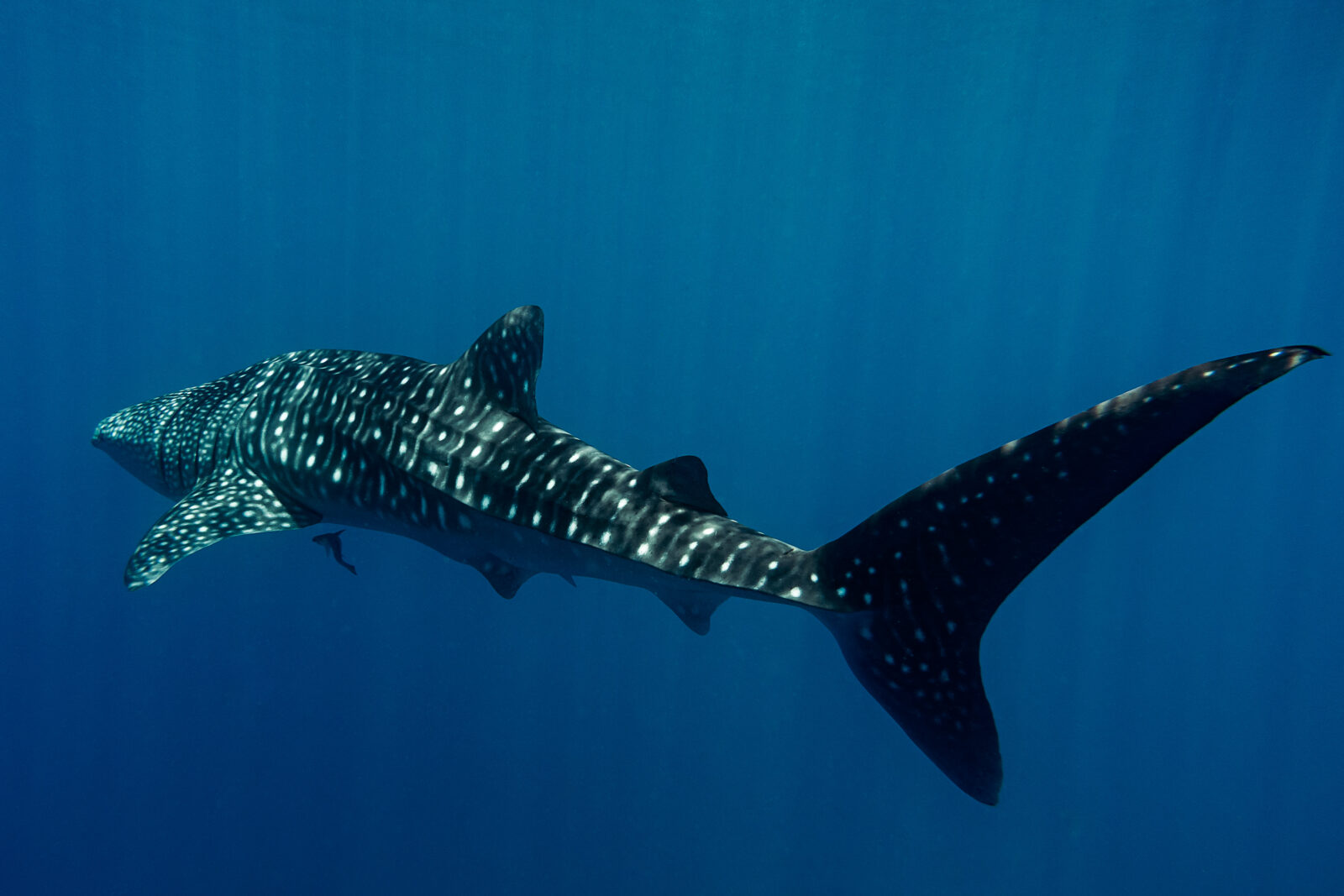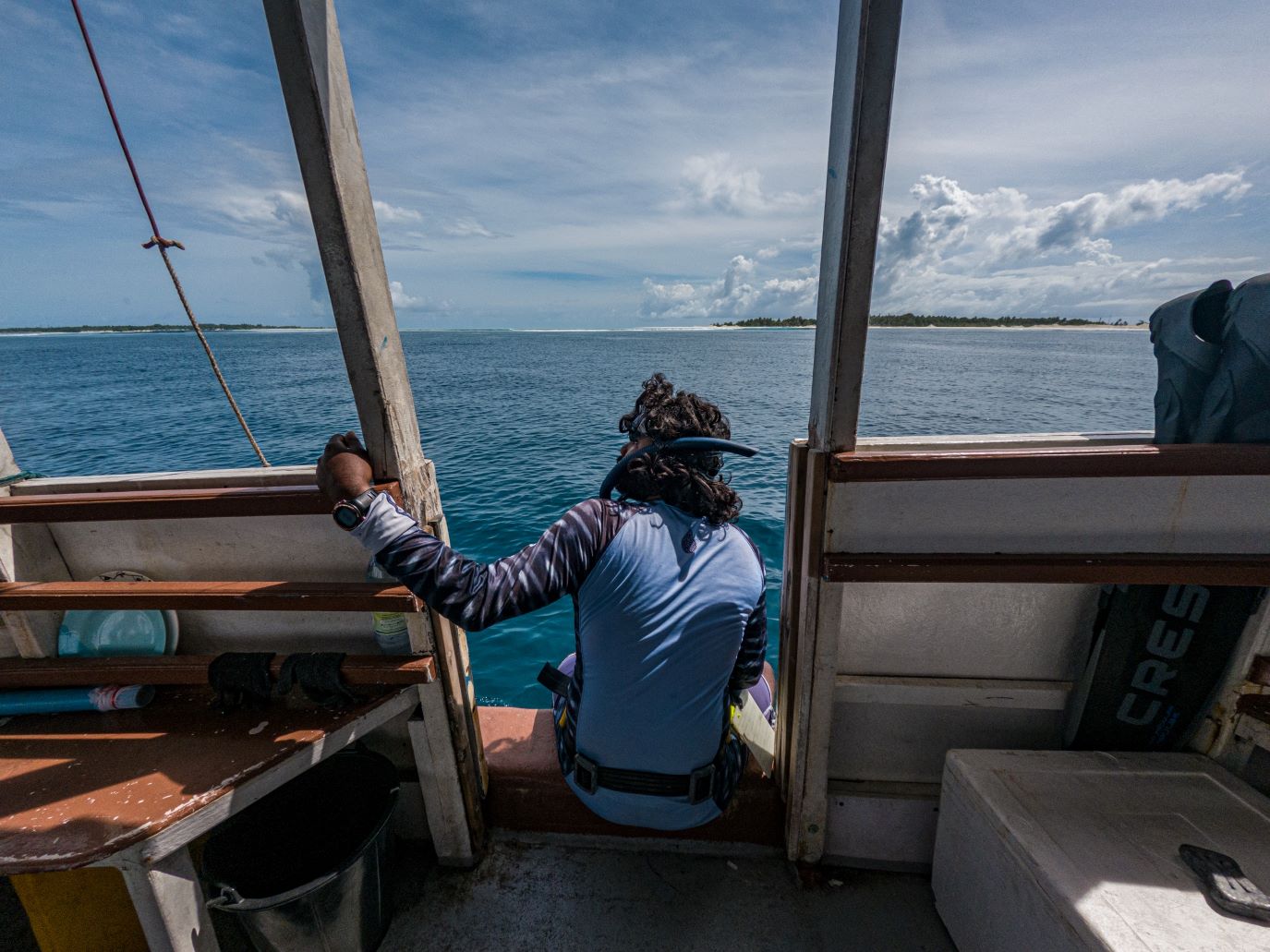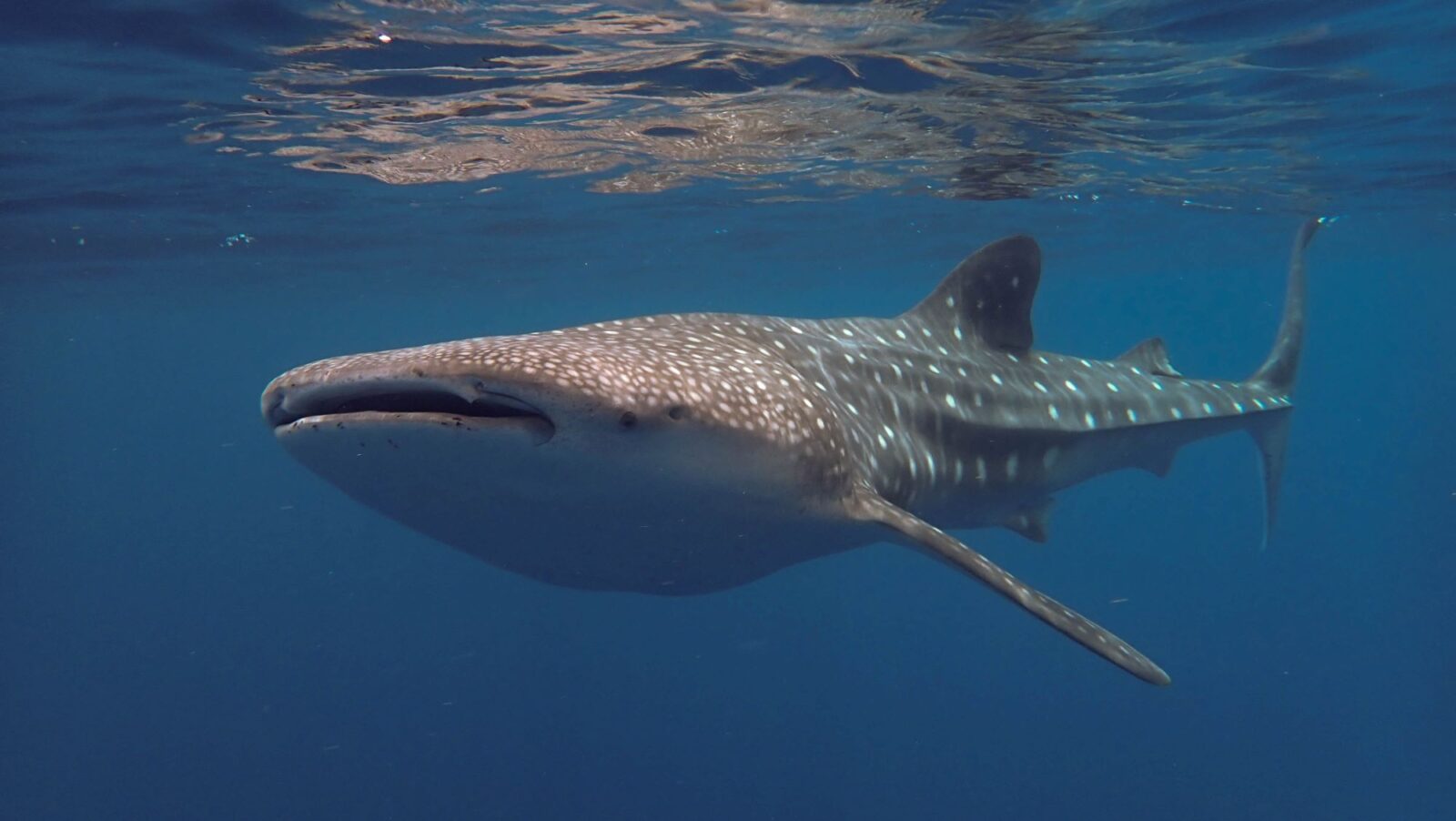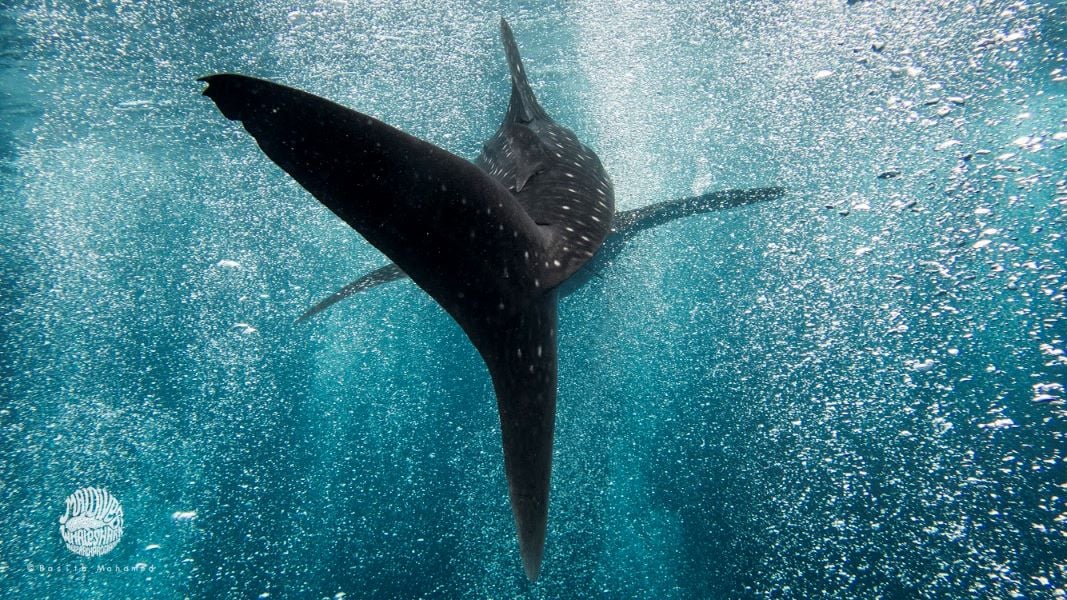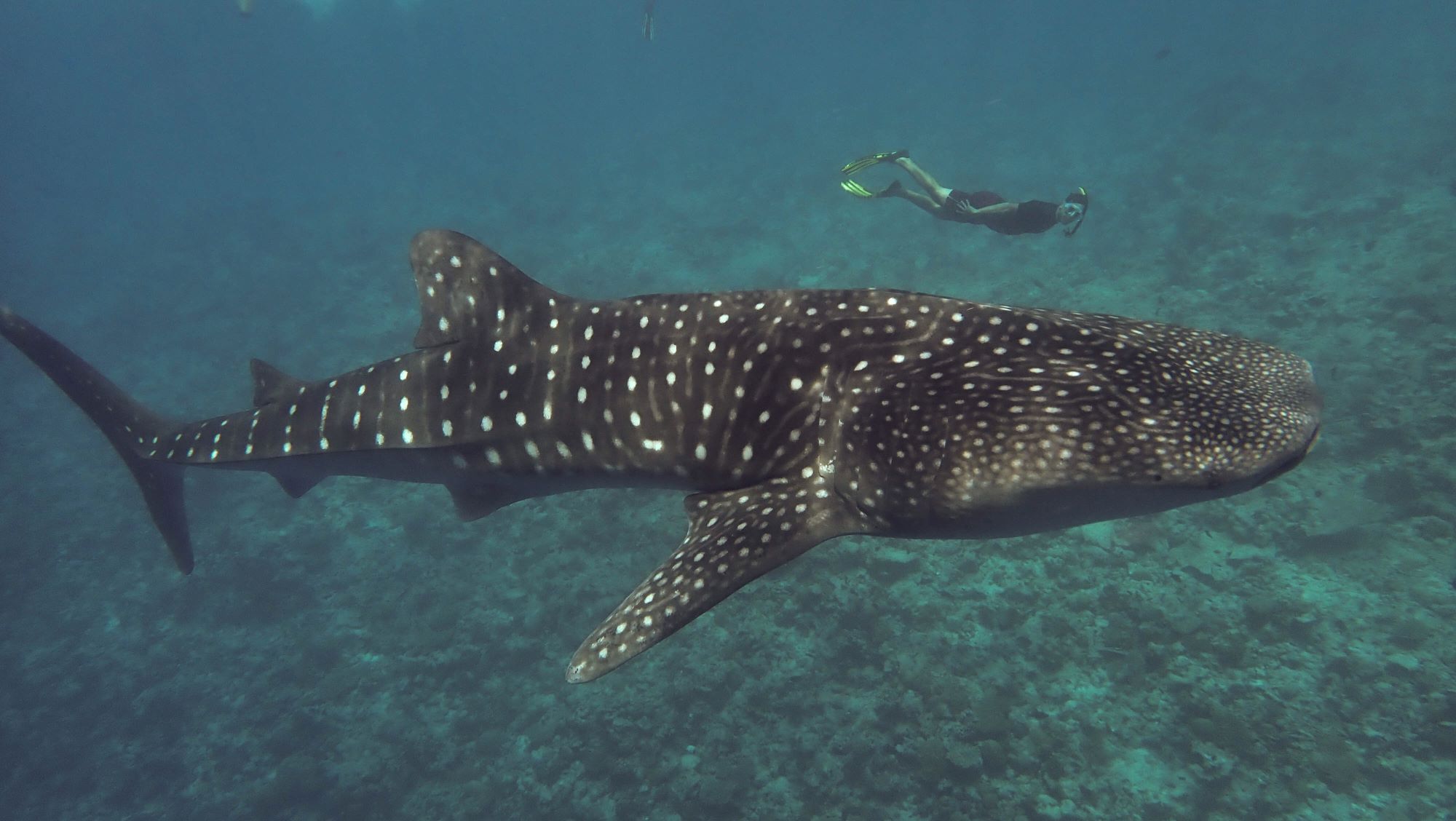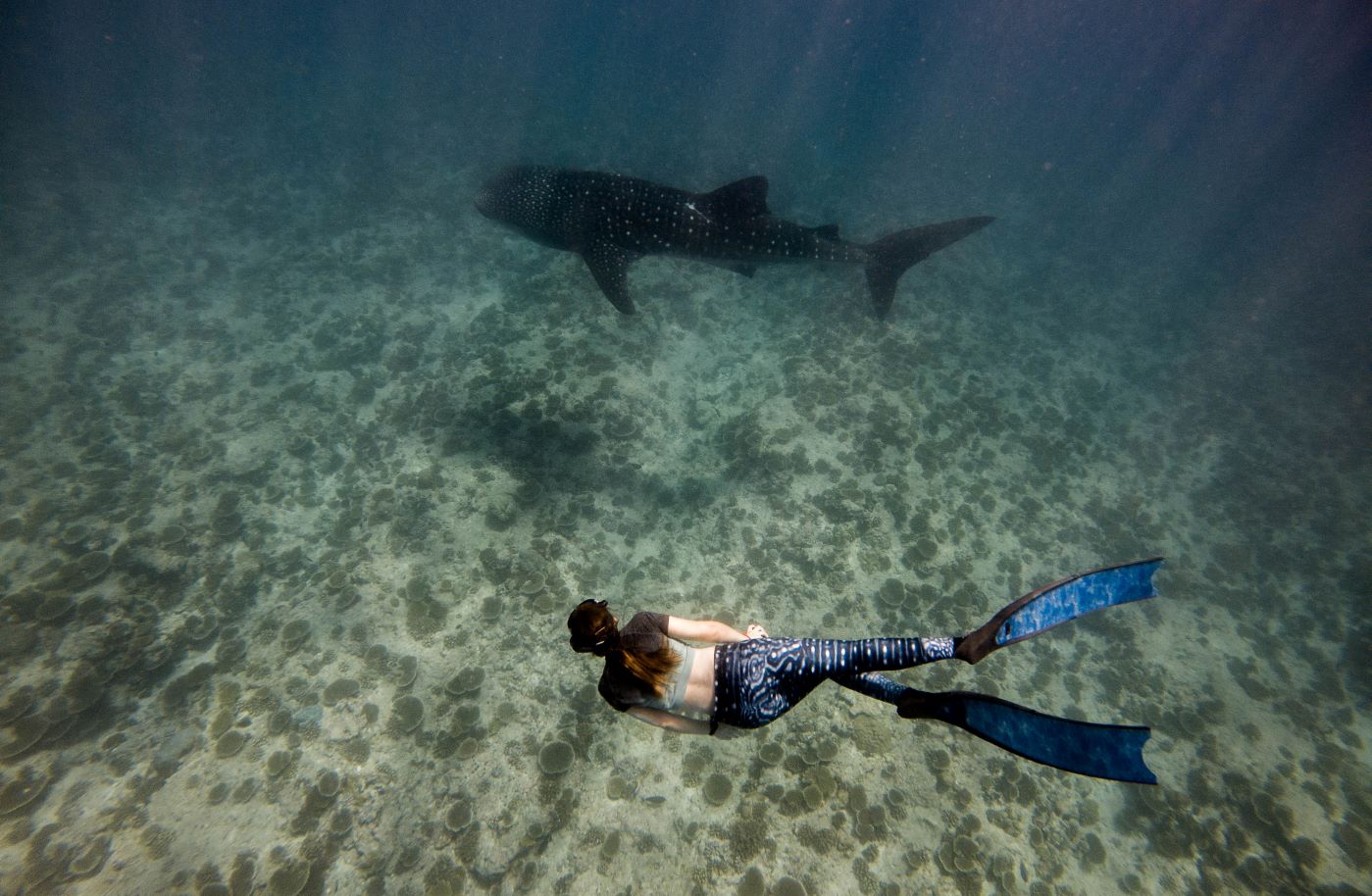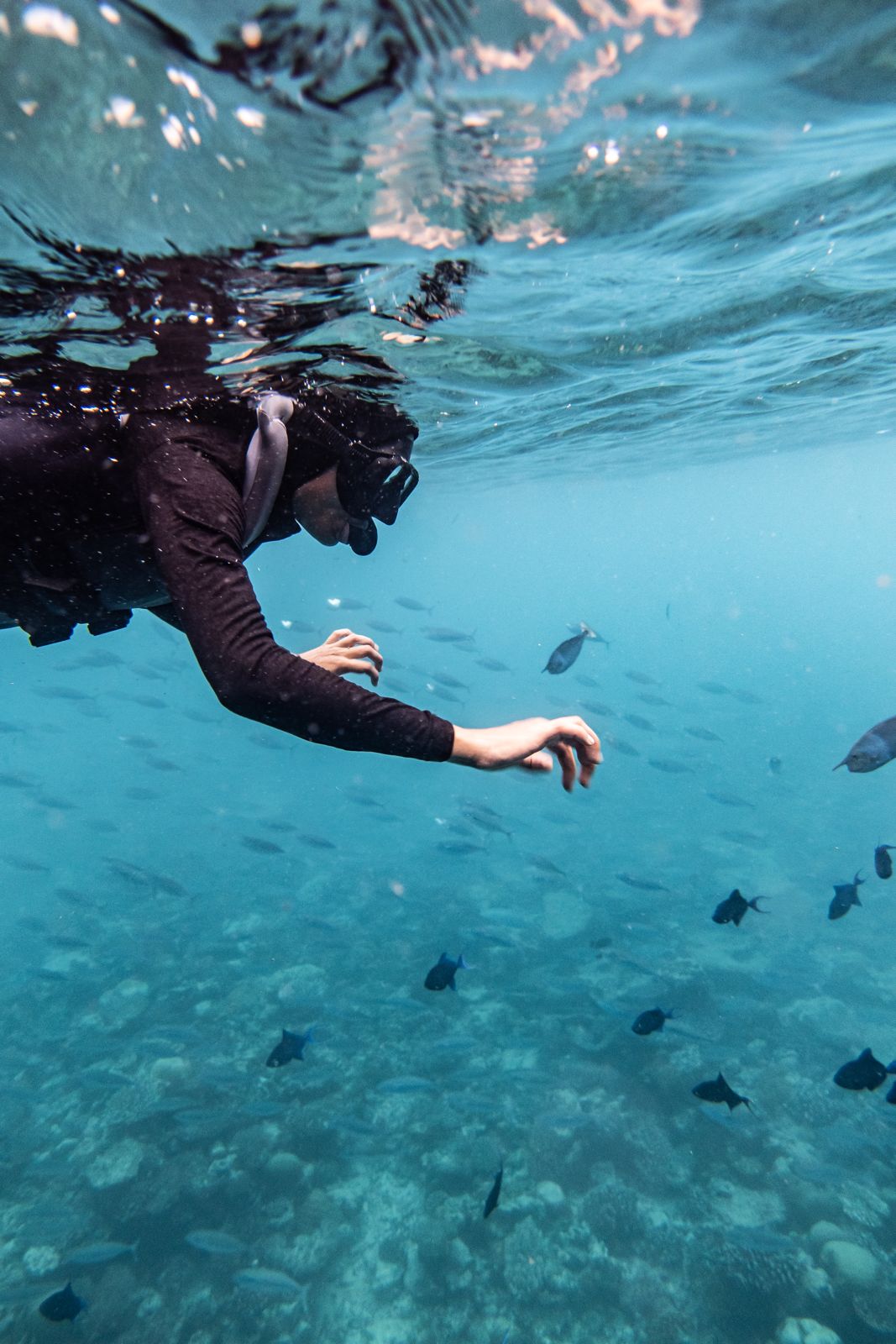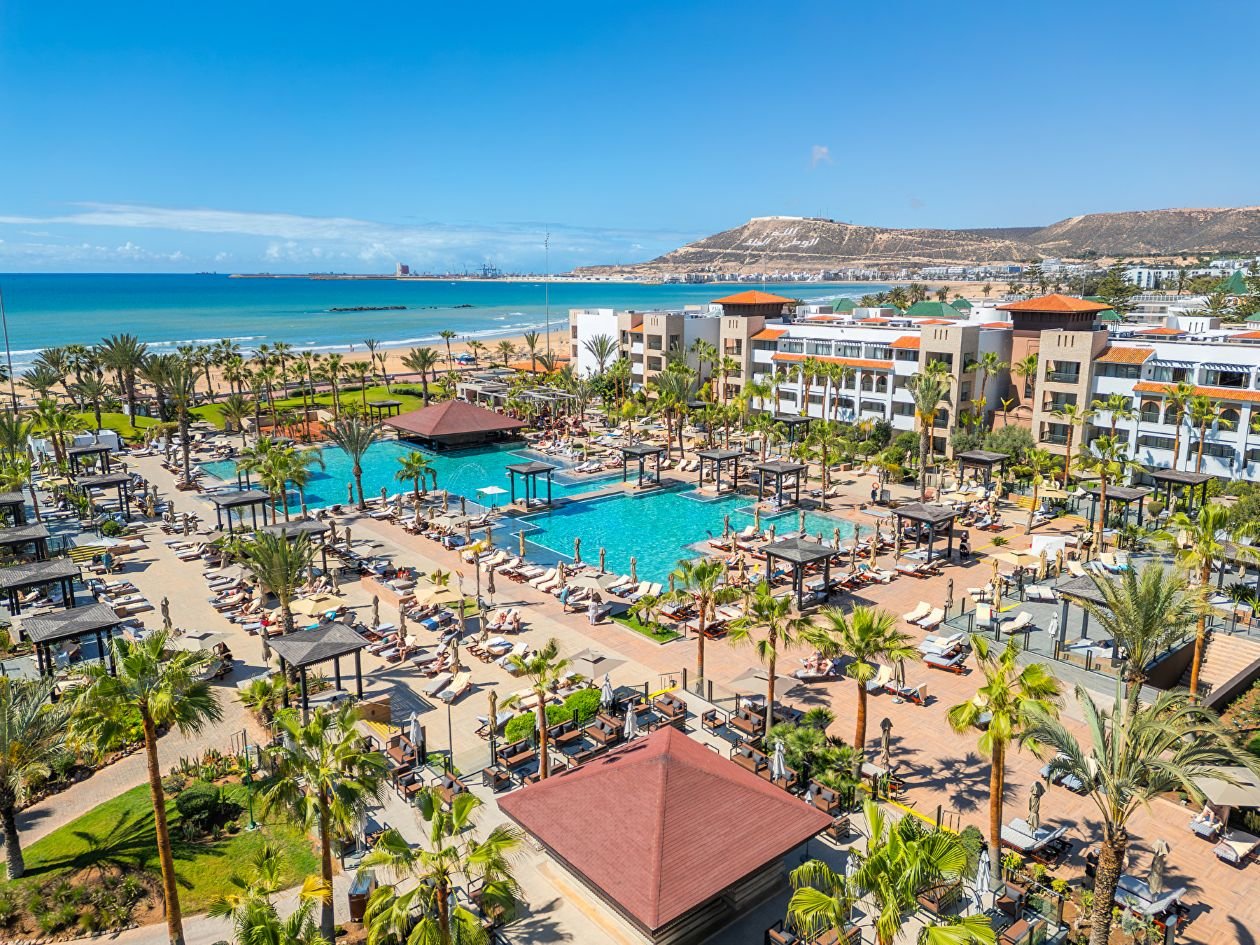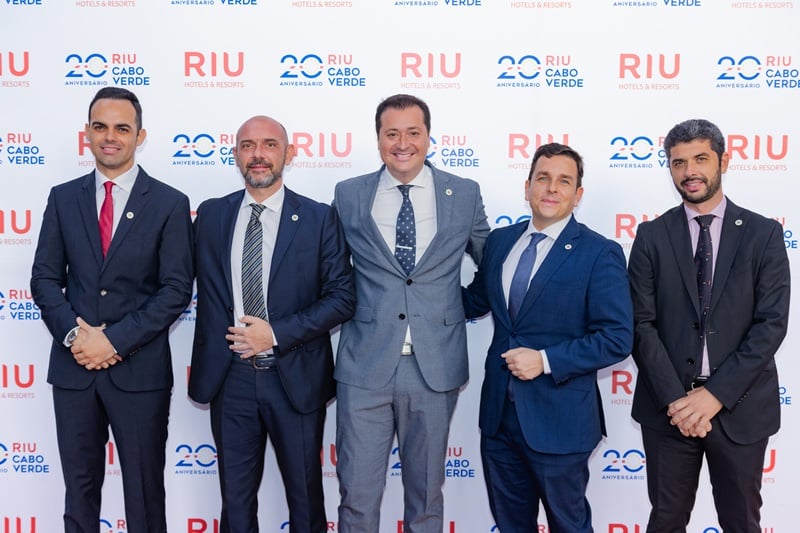How can we protect whale sharks in the Maldives? The MWSRP project and RIU
15 May, 2025In the Indian Ocean, among crystal-clear waters and coral reefs teeming with life, lives the largest fish in the world: the whale shark. Imposing, peaceful and vulnerable, this marine giant has found its staunchest defender in the Maldives Whale Shark Research Programme (MWSRP). Since 2006, a team of scientists and educators has been studying and protecting this unique species. This year, RIU is joining their cause as part of our Proudly Committed sustainability strategy, reinforcing our commitment to generating the greatest possible positive impact on the environments and communities in which we operate.
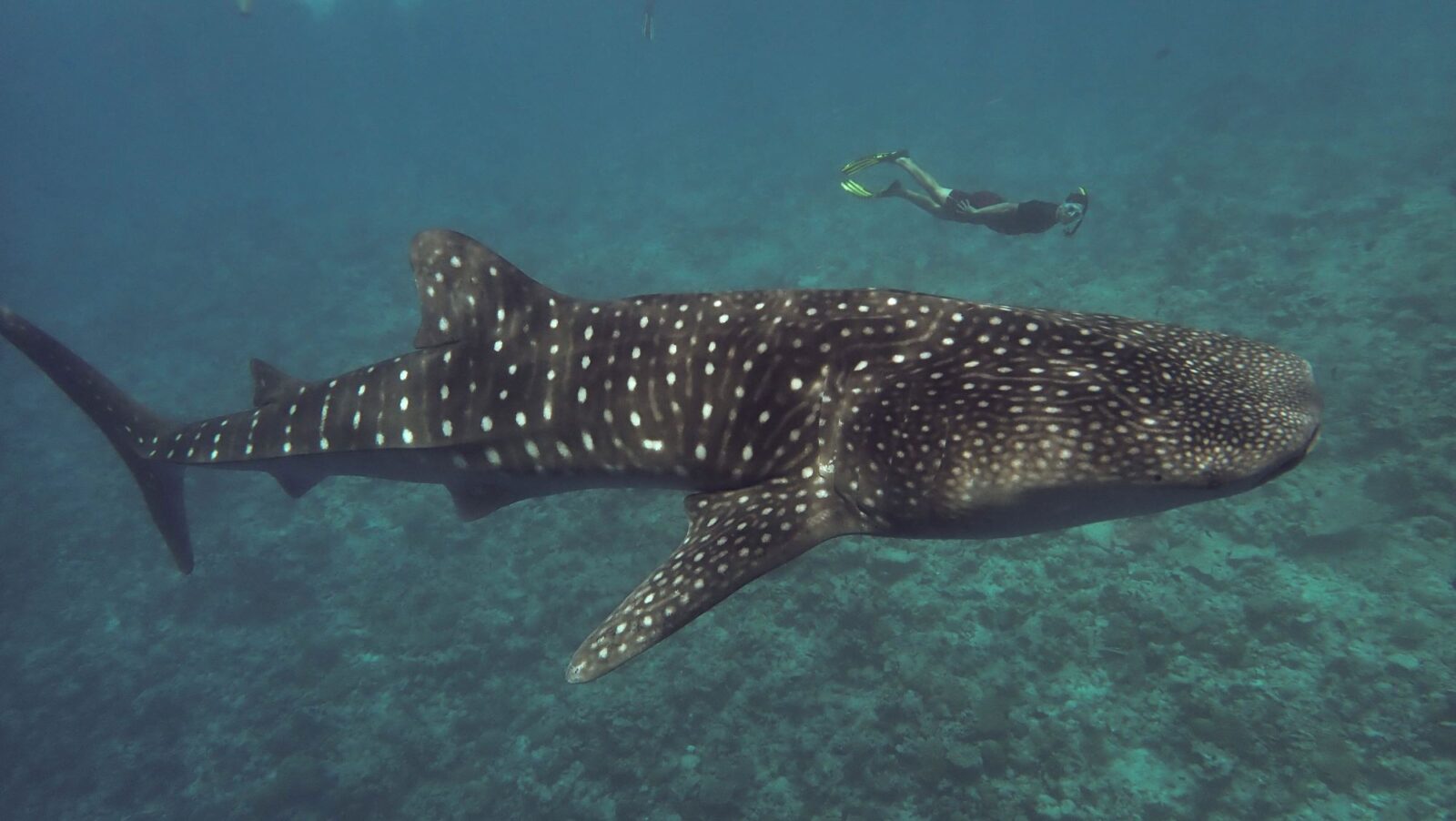
A project born out of love for the ocean
The MWSRP began as a small expedition with a clear goal: to close the knowledge gap surrounding whale sharks in Maldivian waters. Although the species had been protected since 1995, little was known about their habits, movements or health status. It is impossible to conserve something you do not understand.
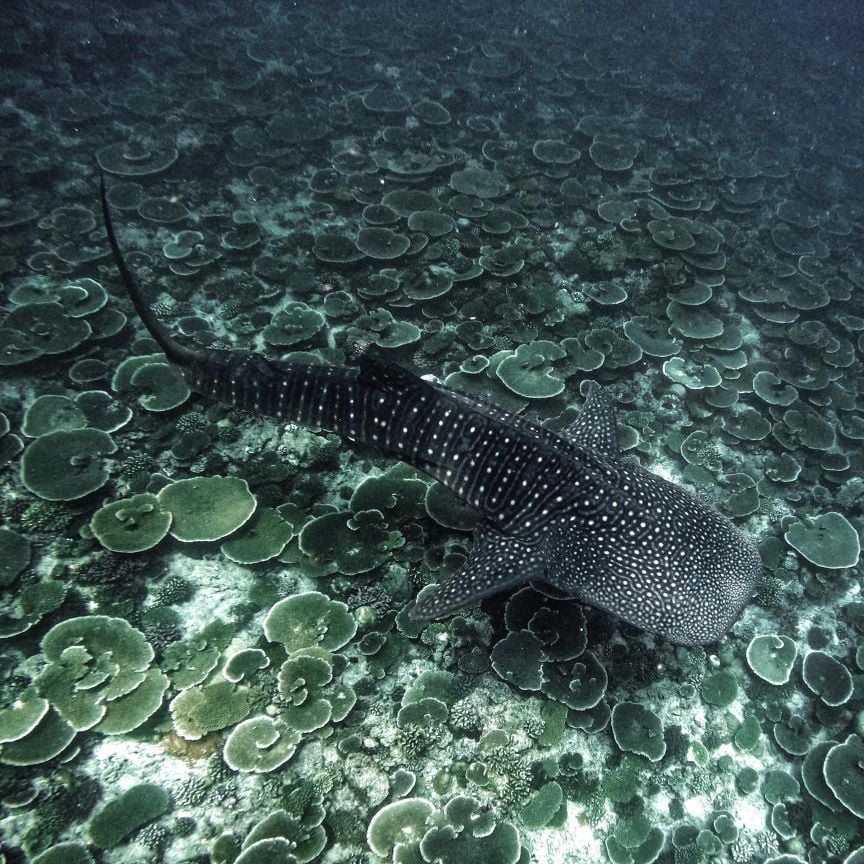
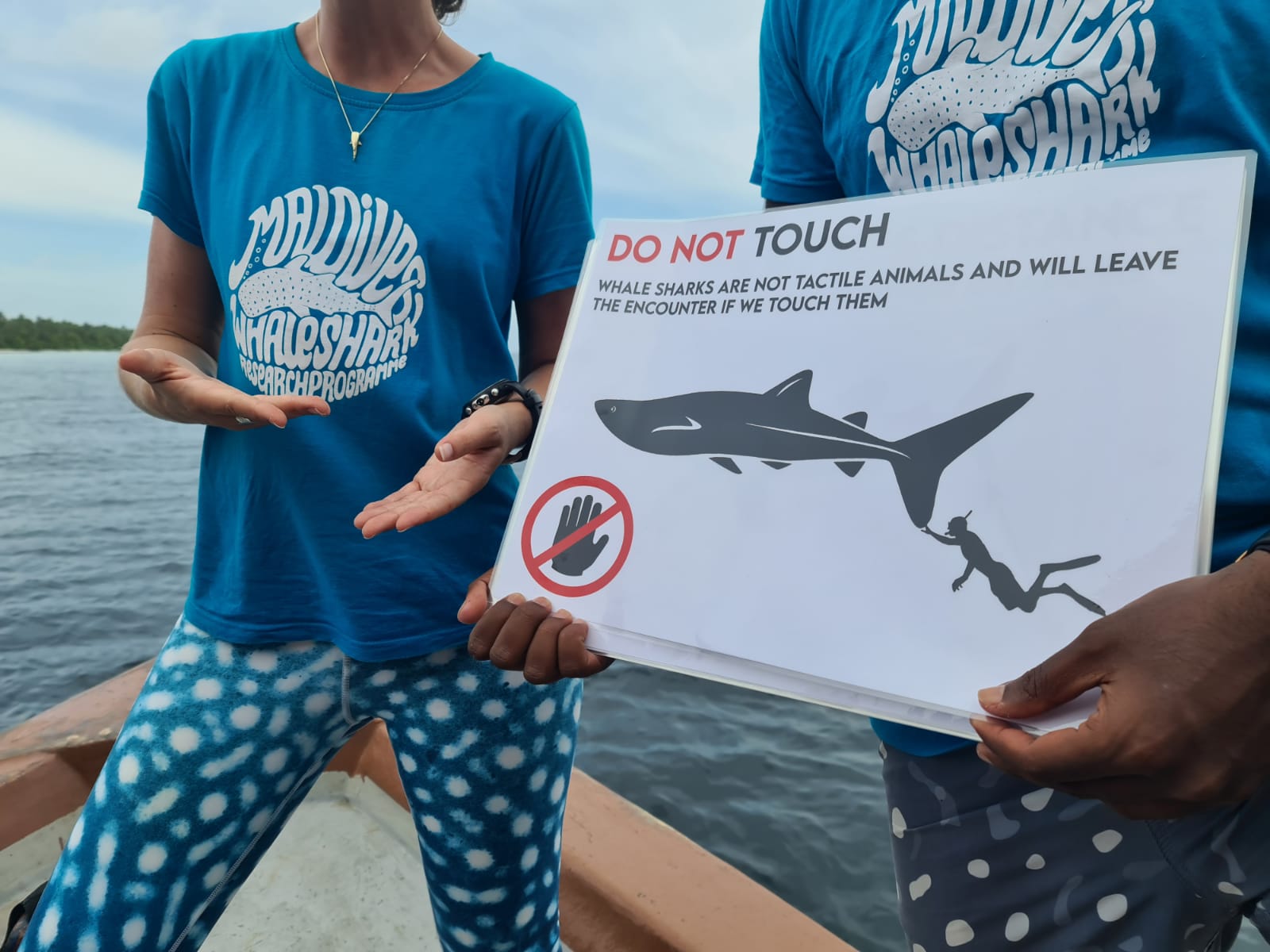
Irthisham Zareer, the programme’s director, sums it up this way: “What began as a scientific expedition has become the only long-term project dedicated to this species in the Maldives. But we soon realised that research alone was not enough. We also needed to connect with the local communities.”
And that is just what they did. Today, the MWSRP not only collects essential data on these animals, but also trains, educates and motivates people of all ages to protect them.
Education to transform the relationship with the sea
But if there is one particular thing that fills the MWSRP team with pride, it is their educational programmes. The project “Moodhu Kudhin” (Children of the Sea) brings marine science to classrooms and beaches. Children learn about the ocean not only in theory, but also by diving, exploring reefs and overcoming their fears.
“Seeing how they gain confidence in the water, how their curiosity is sparked… it’s something you never forget”, says Irthisham.

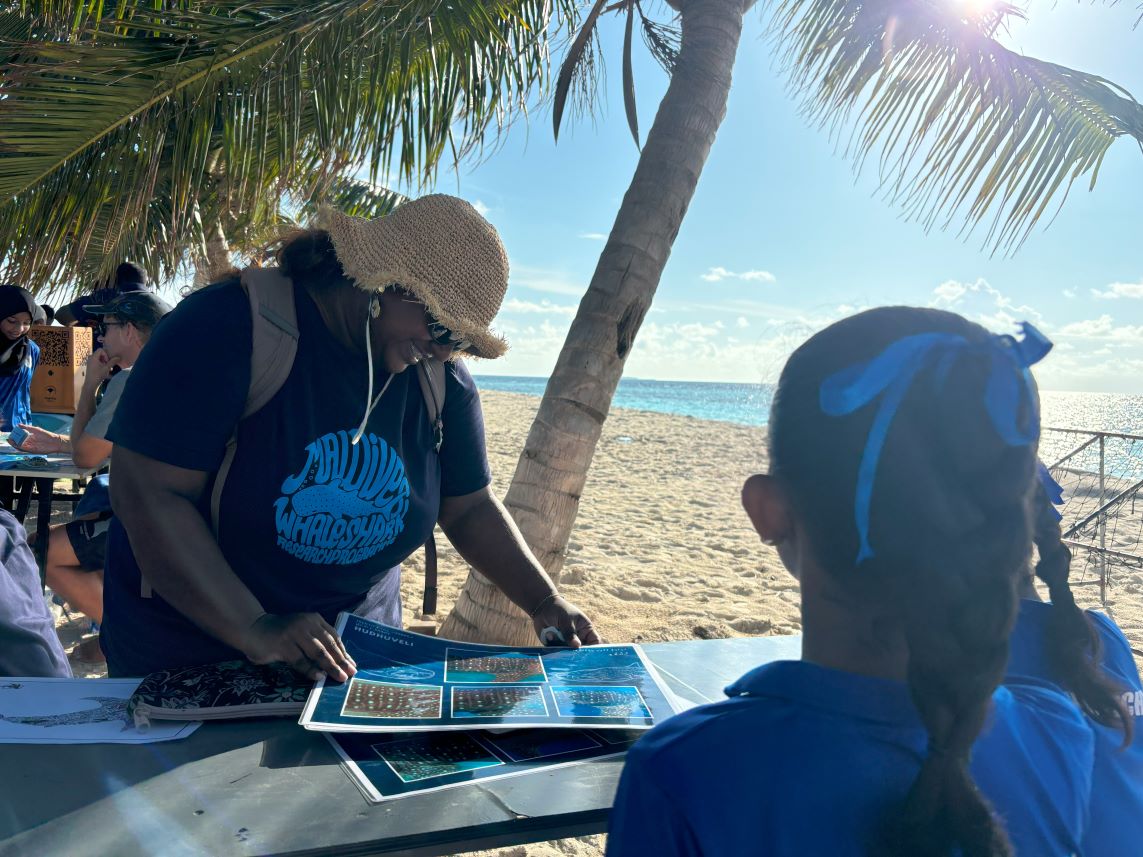
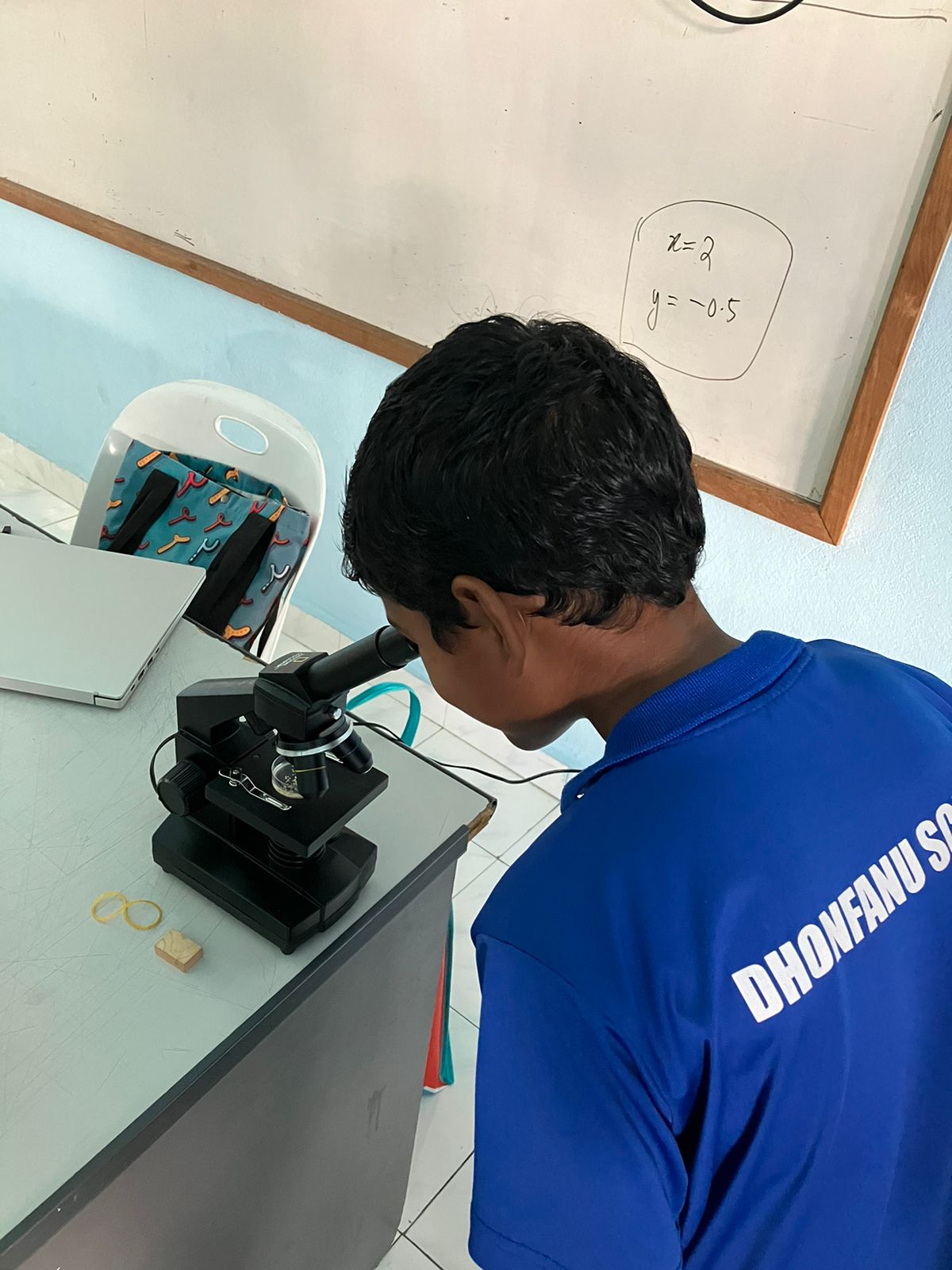
Many of these children go on to become snorkelling guides, marine scientists or simply ocean advocates within their communities. They are all examples of how education and passion can build a sustainable future.
Connecting Constellations: a project with a future
The collaboration between RIU and the MWSRP in the Maldives is part of the Connecting Constellations project, an initiative that brings together science, jobs, education and social commitment. Its name is a reference to the unique spot patterns that identify each whale shark, as if they were stars in a marine constellation.
“Our goal is to expand the work to more southerly atolls, train more young people and collect more data to help us better protect these habitats”, Irthisham explains. To achieve this, the project combines technology (including drones and recognition software) with interviews with local communities and maritime traffic surveillance. This allows informed decisions to be made that protect both animals and the people who depend on the ocean.
This collaboration is part of RIU’s sustainability strategy, Proudly Committed, and builds on other initiatives we are promoting in different destinations with the goal of having a flagship project in each one. In Mexico, Jamaica, Cape Verde and Aruba, we support the conservation of jaguars, green macaws, sea turtles and cottontail rabbits, along with other species. All these actions have the same aim: to reduce environmental impact and preserve the environment to guarantee its future.
Together for a more vibrant ocean

The work of the MWSRP is an inspiration to all of us who believe that tourism can and should be a tool for protecting the planet. At RIU, we are proud to contribute to this cause and to be part of a chain of small actions that generate great changes.
We invite you to follow the work of MWSRP, find out more about its key figures and be inspired by their commitment. Because protecting the ocean means protecting everyone’s future.
Visit their website
Instagram
Facebook
